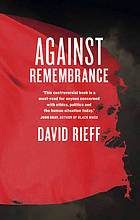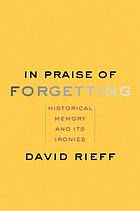What’s the point of remembering historical traumas? Has remembering the Holocaust prevented genocides? What of 9/11? Why do we remember these things? To what purposes do we put our memories? Are they always for good?
But most times they are not memories at all, not really. They are political stories we have chosen to latch on to for specific reasons. No-one in Ireland “remembers” the Irish Easter Rising. No-one in Australia “remembers” Gallipoli. Why do we sacralize certain political stories we call memories? And why do we even call them memories? To what use do we put these “memories”?
Remembrance as a species of morality has become one of the more unassailable pieties of the age. Today, most societies all but venerate the imperative to remember. We have been taught to believe that the remembering of the past and its corollary, the memorialising of collective historical memory, has become one of humanity’s highest moral obligations.
But what if this is wrong, if not always, then at least part of the time? What if collective historical memory, as it is actually employed by communities and nations, has led far too often to war rather than peace, to rancour and resentment rather than reconciliation, and the determination to exact revenge for injuries both real and imagined, rather than to commit to the hard work of forgiveness?
That’s quoted from an article by war correspondent David Rieff in a Guardian article, The cult of memory: when history does more harm than good.
Provocative, yes. Thought-provoking, too.
The questions I opened with are based on an interview with David Rieff on the Late Night Live program on Australia’s Radio National. Interviewer Philip Adams: In praise of forgetting. That’s the link to the most excellent interview. Promise to listen to it before you go any further. (I have not yet fully read the Guardian article I quoted from above but this post is inspired by the interview.)
The two related books by David Rieff:
His recently published In praise of forgetting : historical memory and its ironies. And not forgetting his earlier Against Remembrance.


